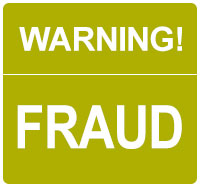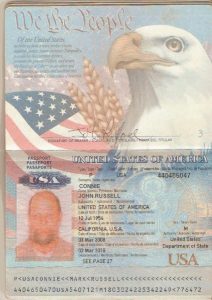Real estate bad cheque scam using the name John Connie
Date First Reported: July 2016
Primary Name Associated: John Connie
Description of Potential Fraud:

An Ottawa lawyer notified us that her client received an email from the purported John Connie looking to purchase a property that her client had listed online. Here is what happened in the lawyer’ own words:
My client listed his condo on Comfree and received an offer from someone who had never seen the unit. Then he sent a cheque for $355,000.00 (as the deposit – which was supposed to be 10k). So our antenna were up from the get go. The letter that came with the cheque had a Florida address, the cheque was from a Toronto charity (but wrong postal code), the purchaser’s lawyer is in some other US State and it came with a passport picture of a John Connie. I thought that part was a joke (con-man Connie). Anyway my client has now traced the buyers email address to Nigeria!

In this type of scam the fraudster pretends interest in a property and sends a certified cheque or bank draft as a deposit or full payment that will be deposited in the lawyer’s trust account. Soon after, some reason will be given for backing out of the deal and the fraudster will ask for the deposit or payment back, minus whatever legal fees and penalties the lawyer holds back.
Of course, the original cheque was fraudulent, so any amount the lawyer sends to the fraudster will cause a shortfall in the trust account.
See our Confirmed Fraud Page for more of an explanation of how these frauds work and to see other names associated with it. Our Fraud Fact Sheet lists the red flags of a bogus legal matter that is really a fraud.
How to Handle a Real or Suspected Fraud
If you have been targeted by any of these frauds, please forward any of the emails and supporting documents that you have received to [email protected]. We use this information for the warnings we post on AvoidAClaim. We do not disclose the names of firms that have provided us with information.
Ontario Lawyers - Call LAWPRO
If you are an Ontario lawyer acting on a matter that you suspect might be a fraud, call LAWPRO at 1-800-410-1013 (416-598-5899). One of our Fraud Team members will talk you through the common fraud scenarios we are seeing and help you spot red flags that may indicate you are being duped. This will help you ask appropriate questions of your client to determine if the matter is legitimate or not. If the matter you are acting on turns out to be a fraud, we will work with you to prevent the fraud and minimize potential claims costs.
What can you do to help put a stop to the fraud attempt?
You can simply stop replying to the fraudster’s emails or inform them that you suspect fraud and will not act on the matter. You can report the fraudsters’ email addresses to the email hosting company. If you have a fraudulent cheque you can destroy it or send it to the fraud department of the financial institution it is drawn upon. In Canada, you can report the fraud to the Canadian Anti-Fraud Centre.
We are often asked if it is worthwhile to report the fraud attempt to the police in the hopes of helping catch the fraudsters. You can certainly report the fraud to your local or federal law enforcement agencies, but unfortunately it is often difficult, expensive and time consuming for them to attempt to shut down these online fraud perpetrators (though there are some successes).
What if the fraud has been successful?
If you have been successfully duped, please immediately notify LAWPRO as there may be a claim against you. See the LAWPRO website for instructions on how to report a claim.
For more immediate updates on fraud and claims prevention, subscribe to the email or RSS feed updates from LAWPRO’s AvoidAClaim blog.
Fraud Fact Sheet
More fraud prevention information and resources are available on the practicePRO Fraud page, including the Fraud Fact Sheet, a handy reference for lawyers and law firm staff that describes the common frauds and the red flags that can help identify them. To proactively prevent trust account shortfalls and malpractice claims, LAWPRO encourages firms to teach their lawyers and staff about fraud and how to recognize fraud attempts.

Leave a Reply